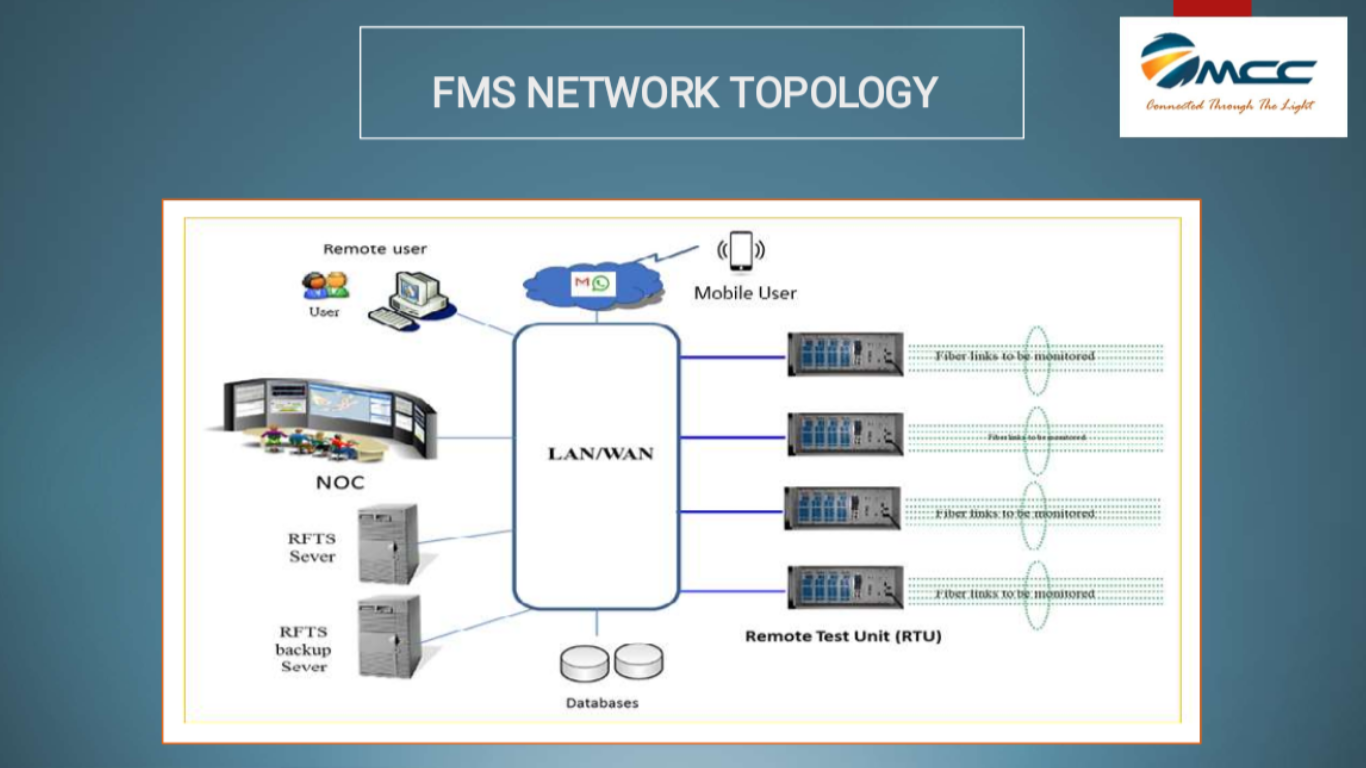FMS FUNCTION AND DEFINITION
Fiber Monitoring System is a “ fiber optic cable quality monitoring device” that continuously monitor the real time condition of fiber optic cable through the use of integrated software & hardware.
The main function of FMS is to detect interference or anomaly against optical cables such as:
-Broken Cable/Cable Cut/Bending.
-Degradation (change in damping value & other optical fiber performance metrics)
FMS COMPONENTS
RTU (Remote Test Unit)
Automatically tests the optic cable network under surveillance and provides a data report to the RFTS.
RFTS (Remote Fiber Test System)
Collects and analyses data received from the RTU, against the possibility of interference that occurs in the fiber cable network that is being monitored.
FMS NETWORK TOPOLOGY
FMS SURVEILLANCE
FMS SURVEILLANCE MODEL
FMS in its performance is divided into two surveillance models:
DARK FIBER MONITORING / PASSIVE CABLE
Supervise the fiber optic cables in which there is no data stream (spare cable)
ACTIVE FIBER MONITORING / ACTIVE CABLE
Supervise fiber optic cables in which there is data stream (cable in use)
WHY FMS NEEDED?
The occurrence of disturbances in the fiber optic cable can be concluded to have an impact on 90% of the cores in it or impact the entire cores
Cable anomaly classification could be:
-Fragile with age
-Degradation occurs (cable quality decreases)
-Breaking up over things
-Attacks of rodents etc.
BENEFIT OF FMS
With the FMS system, fiber optic network surveillance becomes effective & efficient and a high level of accuracy of network availability.
-Improving service quality
-Shorten error detection & identification time
-Better monitoring & management of optic cable network performance
-Provides ease of maintenance and savings
-Cost effective against FO cable maintenance
